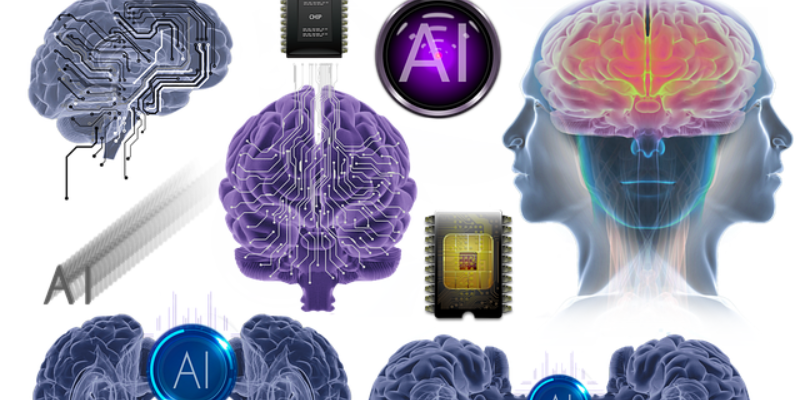Article:
Artificial Intelligence (AI) is no longer a concept curbed to the realms of science fiction. It has infiltrated every aspect of our lives, changing industries, economies, and daily routines. As we delve into the future of AI, we explore its profound impact on numerous sectors and the revolutionary changes it brings.
The Evolution of Artificial Intelligence
AI has evolved significantly since its inception. Initially limited to basic computational tasks, AI systems are now capable of complex problem-solving and decision-making processes. This fruition is driven by improvements in machine learning, deep learning, and neural networks, which enable AI to learn from data, identify patterns, and make informed decisions.
Early Stages and Breakthroughs
The journey of AI began with rule-based systems that performed specific tasks under predefined situations. The development of the first neural networks marked a pivotal moment, allowing machines to mimic human brain functions. Breakthroughs in algorithms and the exponential evolution of data have further propelled AI capabilities.
Modern AI Technologies
Today, AI encompasses a wide array of technologies, including natural language processing (NLP), computer vision, and robotics. NLP enables machines to understand and generate human language, facilitating communication between humans and machines. Computer vision permits AI to interpret visual information, paving the way for innovations like autonomous vehicles and advanced medical imaging. Robotics integrates AI with physical tackles, creating intelligent robots that can perform complex tasks.
AI in Healthcare
The healthcare sector is experiencing a revolution, thanks to AI. From diagnostics to treatment, AI is ornamental the accuracy and efficiency of medical practices.
AI-Powered Diagnostics
AI algorithms can analyze medical images with remarkable precision, detecting conditions such as cancer, fractures, and neurological disorders earlier and more accurately than traditional methods. This early recognition is crucial for successful treatment outcomes.
Personalized Medicine
AI facilitates personalized medicine by analyzing genetic information and patient data to tailor treatments to individual needs. This approach not only improves the efficacy of treatments but also minimizes adverse effects.
Administrative Efficiency
AI streamlines administrative tasks in healthcare, such as scheduling, billing, and patient organization. This allows healthcare professionals to focus more on patient care, enhancing the overall quality of service.
AI in Finance
The finance industry is leveraging AI to optimize operations, manage risks, and enhance customer experiences.
Algorithmic Trading
AI-driven algorithms analyze market data at lightning speed, executing trades with precision. This has reformed trading strategies, enabling high-frequency trading and reducing human error.
Fraud Detection
AI systems can detect fraudulent activities by analyzing patterns and anomalies in transaction data. This proactive approach significantly reduces financial losses and enhances security.
Customer Service
AI-powered chatbots and virtual subordinates provide personalized customer service, handling queries and transactions efficiently. This improves customer satisfaction and reduces operational costs.
AI in Education
AI is transforming education by providing personalized learning experiences and automating administrative tasks.
Adaptive Learning Systems
AI-driven adaptive learning systems tailor educational content to distinct students' needs, ensuring that each student receives the appropriate level of challenge and support.
Automated Grading
AI algorithms can grade assignments and exams quickly and accurately, freeing up educators' time for more interactive and bespoke teaching activities.
Virtual Classrooms
AI facilitates virtual classrooms, providing students with access to quality education regardless of geographical constraints. This is particularly beneficial in remote and underserved areas.
AI in Transportation
The transportation sector is undergoing significant changes with the integration of AI technologies.
Autonomous Vehicles
Self-driving cars, powered by AI, are set to revolutionize the way we travel. These vehicles use computer vision, sensor data, and advanced algorithms to direct roads safely and efficiently, reducing accidents and traffic congestion.
Traffic Management
AI systems analyze traffic data in real-time, optimizing traffic flow and reducing congestion. This leads to shorter convert times and lower secretions.
Logistics and Supply Chain
AI enhances logistics and supply chain management by predicting demand, optimizing routes, and managing catalogues. This results in cost savings and increased efficiency.
AI in Entertainment
The entertainment industry is harnessing AI to create immersive experiences and streamline content creation.
Content Creation
AI algorithms can generate music, art, and even scripts, providing creators with new tools and encouragement. These AI-generated works are pushing the boundaries of creativity.
Personalized Recommendations
Streaming services use AI to analyze viewing habits and preferences, providing personalized recommendations that enhance user experience.
Virtual Reality and Augmented Reality
AI powers advanced VR and AR experiences, creating interactive and immersive environments for gaming, education, and training.
Ethical Considerations and Challenges
As AI continues to evolve, it brings forth ethical considerations and challenges that must be addressed.
Bias and Fairness
AI systems can inherit biases from the data they are trained on, leading to unfair outcomes. Ensuring fairness and transparency in AI decision-making is crucial.
Privacy Concerns
The use of AI involves the collection and analysis of vast amounts of personal data. Safeguarding privacy and ensuring data security are paramount to maintaining public trust.
Job Displacement
The automation of tasks by AI can lead to job displacement. It is essential to develop strategies for workforce reskilling and adaptation to new job roles created by AI advancements.
The Road Ahead
The future of AI is filled with possibilities. Continued advancements in AI technologies will
transform various aspects of our lives, leading to innovations we can scarcely imagine today.
Integration with Internet of Things (IoT)
The convergence of AI with IoT will result in smarter, more interconnected environments. Smart homes, cities, and industries will become more efficient as AI systems manage and optimize resources in real-time.
Enhanced Human-AI Collaboration
As AI systems become more advanced, they will gradually work alongside humans, augmenting our capabilities and enabling us to solve complex problems more effectively. This symbiotic relationship will drive productivity and innovation across sectors.
AI in Environmental Conservation
AI can play a crucial role in addressing environmental challenges. From intensive care wildlife residents to predicting natural disasters, AI systems can provide valuable insights and aid in the development of sustainable solutions.
AI in Space Exploration
AI is set to revolutionize space exploration. Autonomous AI systems can assist in navigating and analyzing interstellar environments, making space missions more efficient and safer.
Conclusion
The future of AI holds immense promise and potential. As we continue to integrate AI into various facets of our lives, it is crucial to navigate the ethical and practical challenges it presents. By promotion innovation and ensuring responsible use, we can harness the power of AI to create a better, more efficient world.






